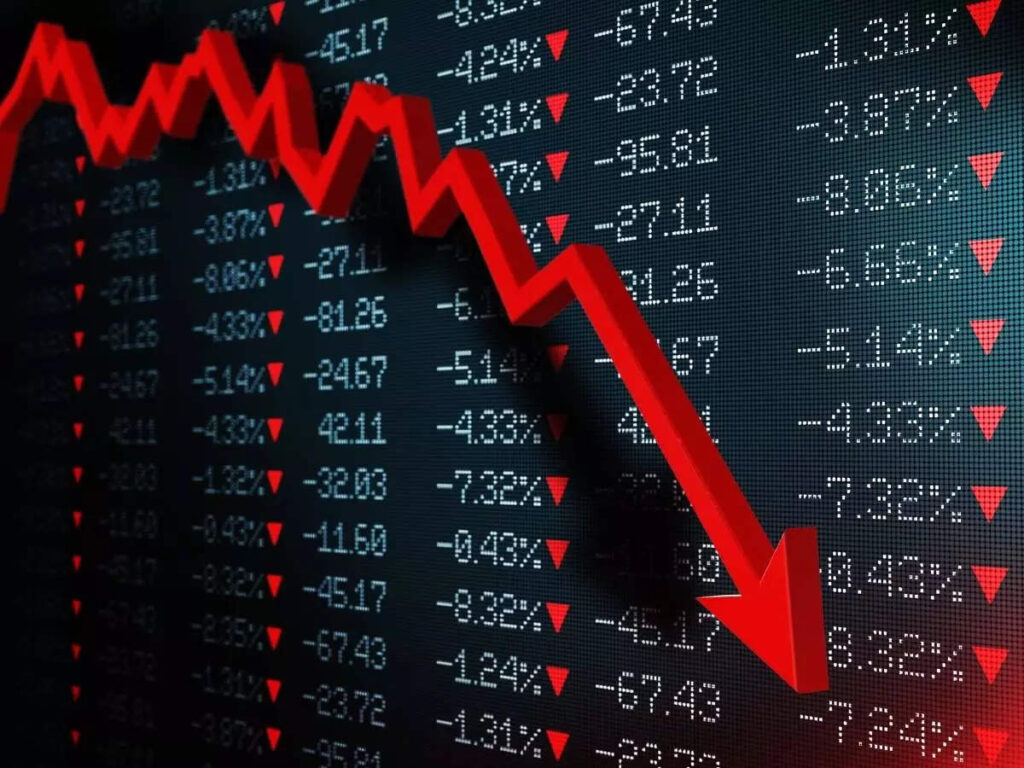Stock Market Crash: Sensex Plunges 3,000 Points, Nifty Slips Below 22,000; Investors Lose Rs 1600000 Crore

Stock Market Crash: Sensex Plunges 3,000 Points, Nifty Slips Below 22,000; Investors Lose Rs 1600000 Crore
Indian stock markets witnessed a massive sell-off on Monday, with the BSE Sensex crashing over 3,300 points and the Nifty 50 slipping below the crucial 22,000 mark, in line with a global equity rout triggered by escalating fears of a US-China trade war.
At the opening bell, the Sensex tanked 3,379.19 points or 4.48% to hit 71,985.50, while the Nifty50 plunged 901.05 points or 3.93% to 22,003.40.
By 10:00 AM, the benchmark indices had trimmed some losses but remained deep in the red. The Sensex was down 2,816.80 points (3.74%) at 72,547.89, and the Nifty dropped 919.95 points (4.02%) to trade at 21,984.50.
The steep fall comes as part of a broader global market rout, following a sharp downturn on Wall Street last Friday, which erased more than $5 trillion in global market capitalization. US President Donald Trump’s renewed tariff threats against China have raised fears of a prolonged trade war, rattling investor sentiment worldwide.
Global Market Sell-Off Intensifies
Stock markets across the Asia-Pacific region also opened sharply lower, mirroring Wall Street’s plunge:
- Nikkei 225 (Japan) plummeted nearly 8%
- ASX 200 (Australia) tumbled over 6%
- Kospi (South Korea) slid 4.4%
In the US futures market:
- S&P 500 futures dropped 4.2%
- Dow Jones futures fell 3.5%
- Nasdaq futures declined 5.3%
Oil Prices Slide Amid Risk Aversion
Crude oil prices extended losses amid global uncertainty:
US crude was down 4%, trading at $59.49 per barrel
Brent crude declined by $2.25 to $63.33 per barrel
Panic Grips Wall Street
On Friday, Wall Street recorded one of its worst sessions since the COVID-19 crash:
- S&P 500 fell 6%
- Dow Jones dropped 5.5%
- Nasdaq shed 5.8%
The market panic was compounded by China’s retaliatory tariffs, a move that investors fear could mark the beginning of a drawn-out and economically damaging conflict between the world’s two largest economies.
Despite a surprisingly strong US jobs report, risk-off sentiment continues to dominate markets globally, as investors brace for further volatility.












